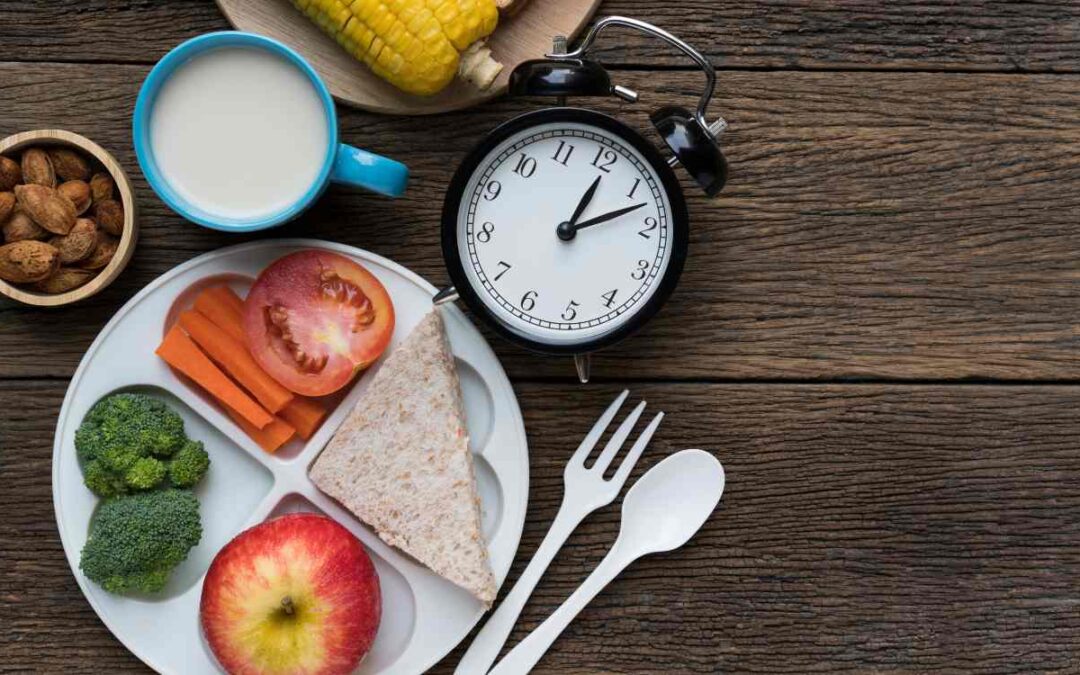In the pursuit of fitness goals and ideal body composition, most individuals focus primarily on what they eat. However, an often overlooked aspect of nutrition is the “when” of eating, a concept known as chrono-nutrition. This emerging field of study investigates how meal timing can influence various health outcomes, affecting everything from weight loss to muscle gain and overall metabolic health.
What is Chrono-Nutrition?
Chrono-nutrition is the study of how the timing of food intake affects health, well-being, and body composition. It aligns with the body’s internal clock, or circadian rhythm, which regulates various biological processes over a 24-hour cycle.
Our circadian rhythms are influenced by external factors like light and temperature, but they also respond to meal timing. By eating in sync with our biological clock, we can optimize our metabolism, enhance energy levels, and better achieve our fitness goals.
The Science Behind Meal Timing
Research indicates that our bodies are more efficient at metabolizing food at certain times of the day. Here are some key insights from recent studies:
Morning: The Optimal Time for Carbohydrates
Consuming carbohydrates in the morning can be particularly effective. Our insulin sensitivity is generally at its peak in the morning, meaning our bodies are better equipped to handle carbohydrate intake and convert it into energy rather than storing it as fat. A study published in the Journal of Nutrition found that participants who consumed a higher proportion of their daily calories in the morning experienced better weight loss outcomes than those who ate most of their calories later in the day.
Afternoon: The Best Time for Protein
Muscles are more receptive to protein intake in the afternoon due to an increase in muscle protein synthesis rates. Consuming a protein-rich meal post-lunch can support muscle recovery and growth, making it an ideal strategy for those looking to build muscle mass. Research in the American Journal of Clinical Nutrition highlights that spreading protein intake evenly across meals can be more beneficial for muscle protein synthesis compared to skewing it towards dinner.
Evening: Light and Balanced Meals
Eating heavy meals late at night can disrupt sleep patterns and lead to weight gain. Our metabolism slows down in the evening, and consuming large quantities of food can lead to inefficient digestion and increased fat storage. A balanced, lighter dinner that includes a mix of proteins, healthy fats, and low-glycemic carbohydrates can promote better sleep and overall health.
Benefits of Chrono-Nutrition for Fitness Goals
Weight Management
Aligning meal times with your circadian rhythm can assist in weight management. Studies suggest that eating earlier in the day can improve weight loss outcomes, while late-night eating is associated with weight gain and metabolic disturbances.
Enhanced Athletic Performance
For athletes or those with rigorous workout regimes, timing meals around training sessions can optimize performance. Consuming carbohydrates before a workout can provide the necessary energy, while protein intake after training can aid in muscle recovery and growth.
Improved Metabolic Health
Regular meal timing, in sync with the body’s internal clock, can improve metabolic markers such as blood sugar levels, insulin sensitivity, and lipid profiles. This can reduce the risk of developing metabolic conditions such as diabetes and cardiovascular diseases.
Practical Tips for Implementing Chrono-Nutrition
- Eat Breakfast: Start your day with a nutrient-rich breakfast to kickstart your metabolism and provide energy for the day ahead.
- Balanced Meals: Aim to distribute your calorie intake evenly across three main meals and avoid high-calorie snacks late at night.
- Nutrient Timing: Consume carbohydrates in the morning, protein in the afternoon, and balanced, lighter meals in the evening.
- Pre- and Post-Workout Nutrition: Fuel up with carbohydrates before exercise and replenish with protein and healthy fats afterward to support recovery.
- Consistency: Try to eat your meals at the same time each day to establish a regular eating pattern that aligns with your circadian rhythm.
Conclusion
Chrono-nutrition is a promising approach to optimizing fitness and body composition. By focusing not only on what you eat but also on when you eat, you can harness the power of your body’s natural rhythms to achieve your health and fitness goals more effectively.
As research in this field continues to grow, it becomes increasingly clear that meal timing is an essential factor in the quest for better health and performance. Whether you are an athlete seeking peak performance or someone aiming for weight loss, integrating chrono-nutrition principles into your daily routine can offer significant benefits.
Start aligning your meal times with your body’s internal clock today and experience the transformative effects on your fitness journey.



Recent Comments